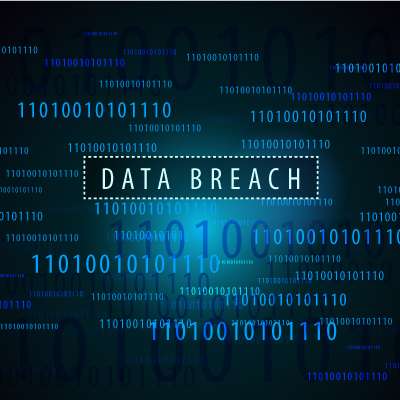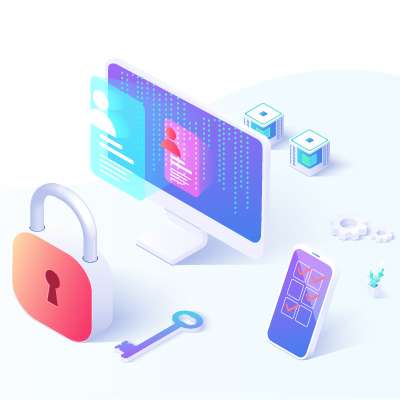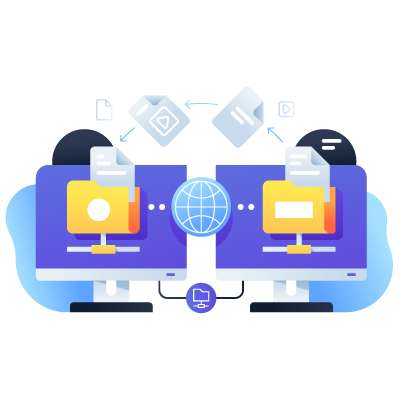Macro Systems Blog
In June of this year, publisher Chicken Soup for the Soul Entertainment, best known for its book series of the same name, filed for Chapter 7 and Chapter 11 bankruptcy and had many of its assets liquidated. One of these assets was the movie rental service Redbox and its eponymous scarlet rental kiosks, rendering the service defunct.
Nonetheless, many kiosks remain standing outside businesses even now, which makes us wonder… what about all the data they collected while they were in use?
Modern wisdom states that if you’re not paying for a product, you’re the product.
For all the good the Internet is capable of doing, it is equally capable of being dangerous… especially when data is involved. Websites and social media platforms collect data from their users and track their movements across the Internet, sell it to advertisers, and more recently, use it to train AI.
Listed below is what you can, and arguably should, do to limit these platforms' ability to do so.
File sharing is a huge deal. When you try to send your friends a meme or share a video with them and it doesn’t send… that can be extremely irritating. When it comes to business file sharing, miscommunication can cost quite a bit. Listed below is a look at two concepts in small business file sharing and how they help a small business.
Digital storage has erupted, in no uncertain terms, over the last few decades. While hard disk drives (HDDs) were the predominant storage format for most of that time, today’s faster and hardier solid-state drives (or SSDs) are becoming more affordable and popular.
That being said, there are still plenty of HDDs out there, all far more prone to breaking than their more advanced counterparts. So, how can you tell when a hard drive failure is pending?
We have frequently espoused the benefits of data backups, referring to how imperative they are should your business experience a disaster at any scale. That being said, there is always the concern that your backups could also be altered negatively. This is one reason that immutable backups exist.
Let’s take a few moments to examine the concept of an immutable backup and its benefits.
Businesses have to deal with a variety of different types of problems, but they often don’t see many of the problems that come from within their company. Whether this comes from hackers, disgruntled customers, or unreliable vendors, every business leader constantly deals with some type of issue. Alas, sometimes these problems can come from inside your organization. Listed below is a look at two employee issues that can potentially cause major headaches for business owners.
Businesses are constantly trying to find a way to best utilize their data. Whether it is creating a business intelligence strategy, integrating artificial intelligence, or for simple analytics, without having accurate, reliable data, the insights you derive can be misleading and end up costing you. That’s why it is critical to know how to scrub or clean your data. Having access to clean data is essential for anyone involved in business intelligence or AI. Listed below is a simple guide to help you get started.
Emerging technologies provide significant opportunities for businesses to achieve their goals. That being said, understanding how and when to leverage these technologies is imperative. One of the most rapidly advancing technologies today is artificial intelligence (AI). Yet, AI encompasses more than what one might initially think. Many of the most impactful business tools are powered by a branch of AI called machine learning (ML). This month's newsletter delves into machine learning, its mechanics, and its applications within a business context.
Big data is now a critical resource for businesses of all sizes, including small enterprises. Modern businesses have unprecedented access to vast amounts of data, enabling them to make more informed decisions and operate more efficiently. This month’s newsletter explores how small businesses harness big data's power.
Business file sharing has become a daily routine. It's a critical part of collaboration, communication, and overall productivity. That being said, with the rise of cyberthreats, file security is more important than ever. It's not just about sharing files but doing it securely and efficiently. Listed below are some best practices for business file sharing.
What is digital waste?
Digital waste is all the useless data in our data storage that lingers until we do something with it. Extra files no longer needed, old emails and chats, and old, blurry pictures you never have and will never use… all qualify as digital waste. While it’s easy to discount digital waste as an annoyance, it creates a much bigger and more serious problem.
Ensuring that your organization's file-sharing policies and procedures are built to enhance security can significantly improve collaboration, distinguishing between efficient, streamlined processes and time-purging, wasteful practices. Navigating this terrain can be a challenge. Listed below are several best practices your business can adopt to optimize file-sharing.
Remote employees are in a conundrum when it comes to data security. While you might be able to protect data stored locally on your company’s in-house network, securing data in use by employees while out of the office is another matter entirely. How can you guarantee that your organization is protecting its data and other sensitive resources from prying eyes?
Your standard IT professional may suggest some common methods of network security such as implementing better preventative measures, like firewalls and antivirus. However, there is more that goes into network security—far more. If you’re not careful, you could accidentally miss some of these three security solutions and expose your business to potential threats. But we’re not about to let that happen!
Any business can benefit from data and use it to enhance its operations. This is especially the case where information technology is involved. By collecting the right metrics, you can better evaluate your business IT’s performance and identify areas for improvement.
Let’s review what some of these metrics should be.























